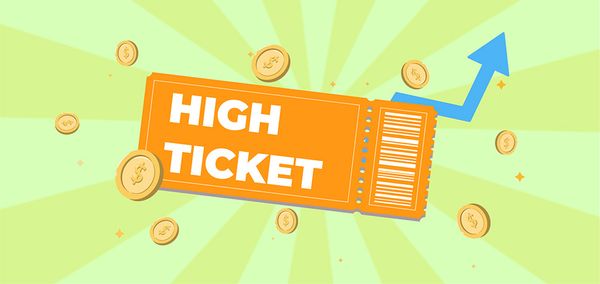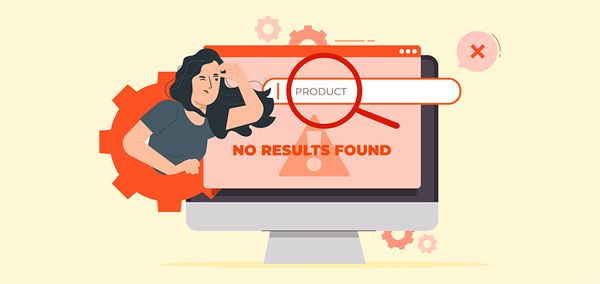What Is Sales Playbook and How to Create One

In today's highly competitive business landscape, organizations are constantly seeking ways to enhance their sales processes and drive revenue growth. One invaluable tool that empowers sales teams to succeed is the sales playbook.
A sales playbook serves as a comprehensive guide that outlines the best practices, strategies, and techniques necessary to win more deals and maximize sales performance.
This article delves into the concept of a sales playbook, exploring its definition and significance within the sales ecosystem.
What Is a Sales Playbook
A sales playbook is a comprehensive document or resource that serves as a guide for sales teams, providing them with a structured framework and best practices to effectively engage with prospects, close deals, and achieve sales targets. It acts as a centralized repository of strategies, tactics, and processes that have proven successful in driving sales.

The primary role of a sales playbook is to guide sales teams by outlining the steps, techniques, and methodologies they should follow throughout the sales process. It serves as a reference point, ensuring consistency in sales activities and aligning the efforts of individual team members towards a common goal.
By establishing a standardized approach, the playbook facilitates effective communication, collaboration, and coordination within the sales team.
Why Sales Playbook Important
Let’s know further where and how sales playbook helps in different aspects:
Provides a Standardized Sales Process
A sales playbook establishes a consistent and structured approach to the sales process. It outlines the steps, actions, and best practices that salespeople should follow, ensuring a standardized and repeatable process across the team.
Enables Effective Onboarding and Training
A sales playbook serves as a valuable resource for new hires during the onboarding process. It provides a comprehensive overview of the sales methodology, strategies, and tactics used within the organization, helping new salespeople get up to speed quickly and effectively.
Improves Sales Team Productivity
With a sales playbook, sales professionals have a clear roadmap to follow, reducing ambiguity and enabling them to focus on high-value activities. By streamlining processes and providing guidance, a sales playbook helps maximize the productivity of the entire sales team.
Enhances Sales Messaging and Value Proposition
A well-crafted sales playbook includes messaging frameworks and value propositions tailored to different buyer personas and stages of the sales cycle. It helps salespeople communicate the unique benefits and value of the product or service effectively, increasing their chances of success in engaging and persuading potential customers.
Streamlines Sales Enablement
A sales playbook consolidates essential resources, tools, and collateral that salespeople need to effectively engage with prospects and close deals. It serves as a central repository for sales enablement materials, making it easy for the team to access and leverage relevant resources.
Enables Scalability and Growth
A sales playbook provides a scalable framework that can be shared and replicated across the sales organization as it expands. It ensures consistent sales practices, messaging, and strategies, enabling the team to handle increased sales volumes and support the company's growth objectives.
Enhances Customer Experience
By equipping salespeople with a well-defined and customer-centric sales process, a playbook helps ensure a positive and consistent experience for potential customers. It enables sales professionals to understand and address customer needs effectively, building trust and fostering long-term relationships.
Provides a Reference for Continuous Improvement
A sales playbook serves as a living document that can be updated and refined based on feedback, market trends, and sales performance data. It becomes a reference point for analyzing and improving the sales process, identifying areas of improvement, and implementing strategic adjustments.
Facilitates Collaboration and Knowledge Sharing
A sales playbook encourages collaboration and knowledge sharing among the sales team. It becomes a platform for sharing best practices, success stories, and lessons learned, fostering a culture of continuous learning and improvement within the sales organization.
Drives Sales Performance and Results
Ultimately, a sales playbook plays a vital role in driving sales performance and achieving desired results. By providing a structured approach, effective training, and valuable resources, it empowers salespeople to perform at their best, increasing their chances of closing deals and meeting or exceeding sales targets.
Step-by-Step Guide to Creating a Sales Playbook
Give a thorough look at this precisely explained Step-by-Step guide to creating a sales playbook:
Step 1: Define Your Sales Process
This step involves analyzing and documenting the various stages and steps that make up your sales process, from initial prospecting to closing a deal. Also, understand the buyer's journey, which is the process a prospect goes through from becoming aware of a problem to making a purchase decision.
| Get Started Now to Grow Your Online Business with the Best AliExpress Dropshipping Tool - DSers! |
Aligning the buyer's journey with your sales process ensures that your team engages with prospects effectively at each step.
Step 2: Create Buyer Personas
It involves researching and collecting information about your potential customers, including their demographics, preferences, and pain points. Buyer personas are fictional representations of your ideal customers. You need to group your target audience into different personas based on common traits and behaviors.
Step 3: Define Sales Roles and Responsibilities
Identify the key roles within your sales team determining the different positions and responsibilities within your sales organization, such as sales representatives, account executives, and sales managers. Clearly define the responsibilities and expectations for each role. It entails outlining the specific tasks, activities, and objectives that each role is responsible for within the sales process.
Step 4: Develop Sales Messaging and Value Propositions
Craft a compelling value proposition, which is a statement that conveys the unique value and benefits your product or service offers to customers.
Create sales messaging that aligns with each stage of the buyer's journey. Which means, developing persuasive and tailored messages that resonate with prospects at each step of their decision-making process.
Step 5: Create Sales Tools and Collateral
Develop a range of sales tools and collateral. These are resources and materials that support the sales team in their efforts to engage with prospects, such as presentations, brochures, case studies, and ROI calculators. Ensure that the sales tools and collateral are aligned with your sales process, buyer personas, and sales messaging.
It helps that the created materials are consistent and tailored to the specific stages of the sales process, target audience personas, and the messaging developed.
Step 6: Provide Sales Training and Enablement
Conduct comprehensive sales training sessions. This involves organizing training programs to equip the sales team with the knowledge and skills required to succeed in their roles. Continuously provide ongoing training and enablement resources.
It will focus on providing ongoing support, resources, and education to sales team members to enhance their performance and keep them up-to-date with market trends and product updates.
Step 7: Establish Sales Performance Metrics and Tracking
Identify key performance indicators (KPIs) which are quantifiable metrics that measure the effectiveness and success of your sales efforts, such as revenue generated, conversion rates, and average deal size. Implement a system for tracking and measuring the identified KPIs.
For this, set up processes and tools to collect and analyze relevant data to evaluate the performance of your sales team and make data-driven decisions.
Conclusion
A sales playbook is a valuable resource that provides a structured framework for your sales team to follow, ensuring consistency and effectiveness in their sales efforts. By following the step-by-step guide provided, you can create a customized sales playbook that aligns with your unique sales process, buyer personas, messaging, and goals.
Remember to regularly update and refine your playbook to adapt to changing market dynamics and continuously improve your sales performance. With a well-crafted sales playbook in place, your team will be better equipped to achieve their targets and drive business growth.













 Company
Company
 Why Choose DSers
Why Choose DSers
 Blog
Blog
 Help Center
Help Center




 Live Chat
Live Chat